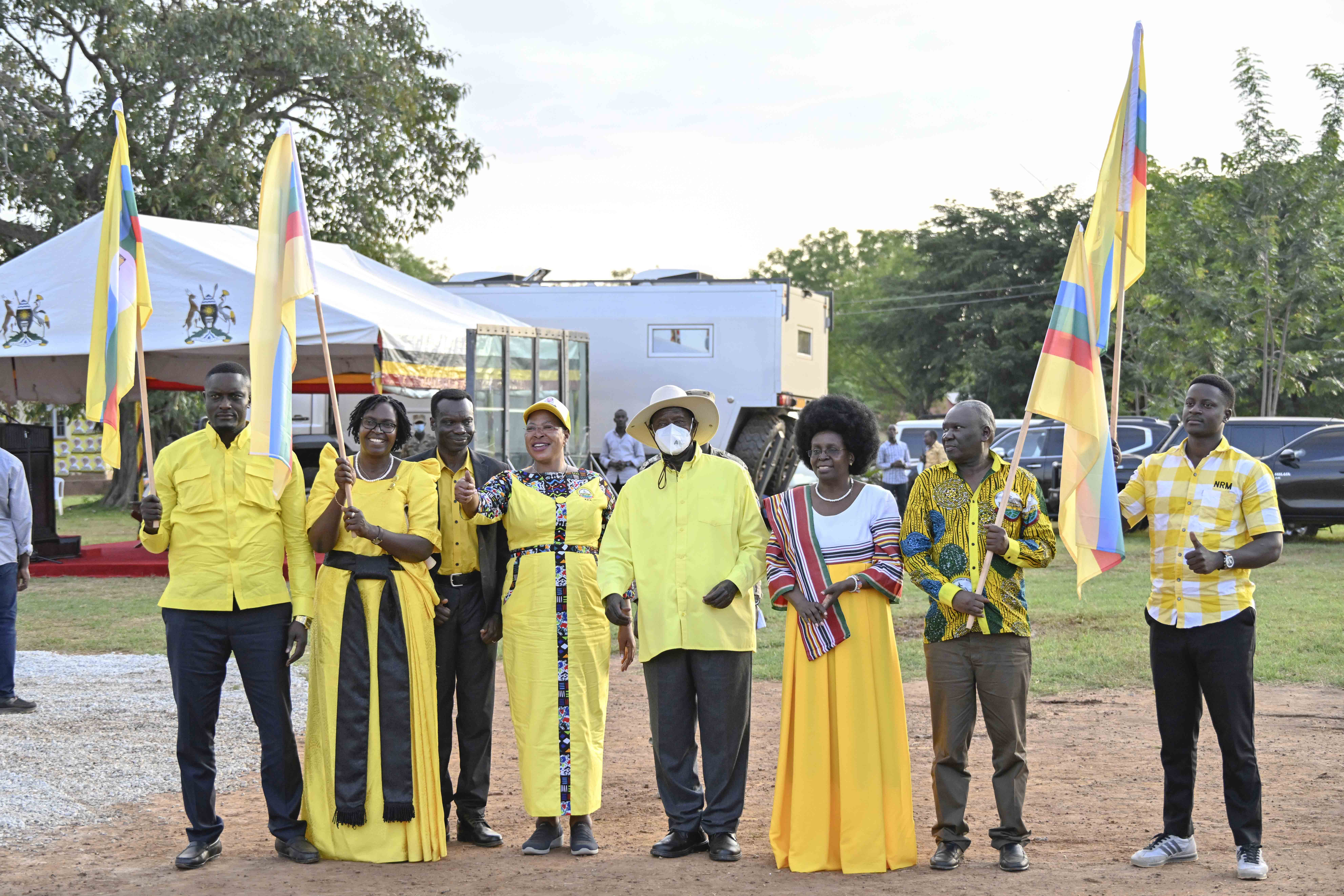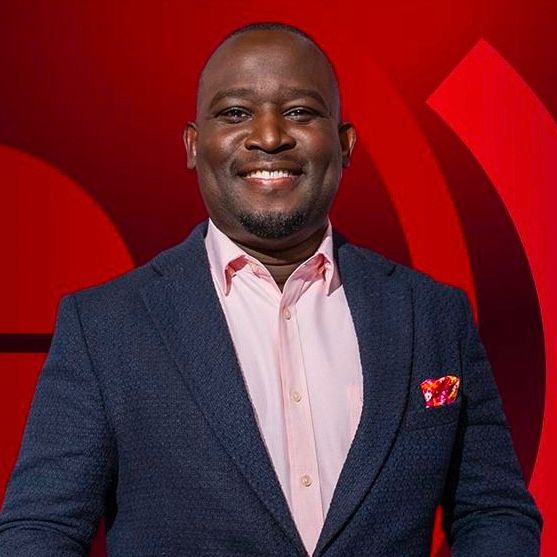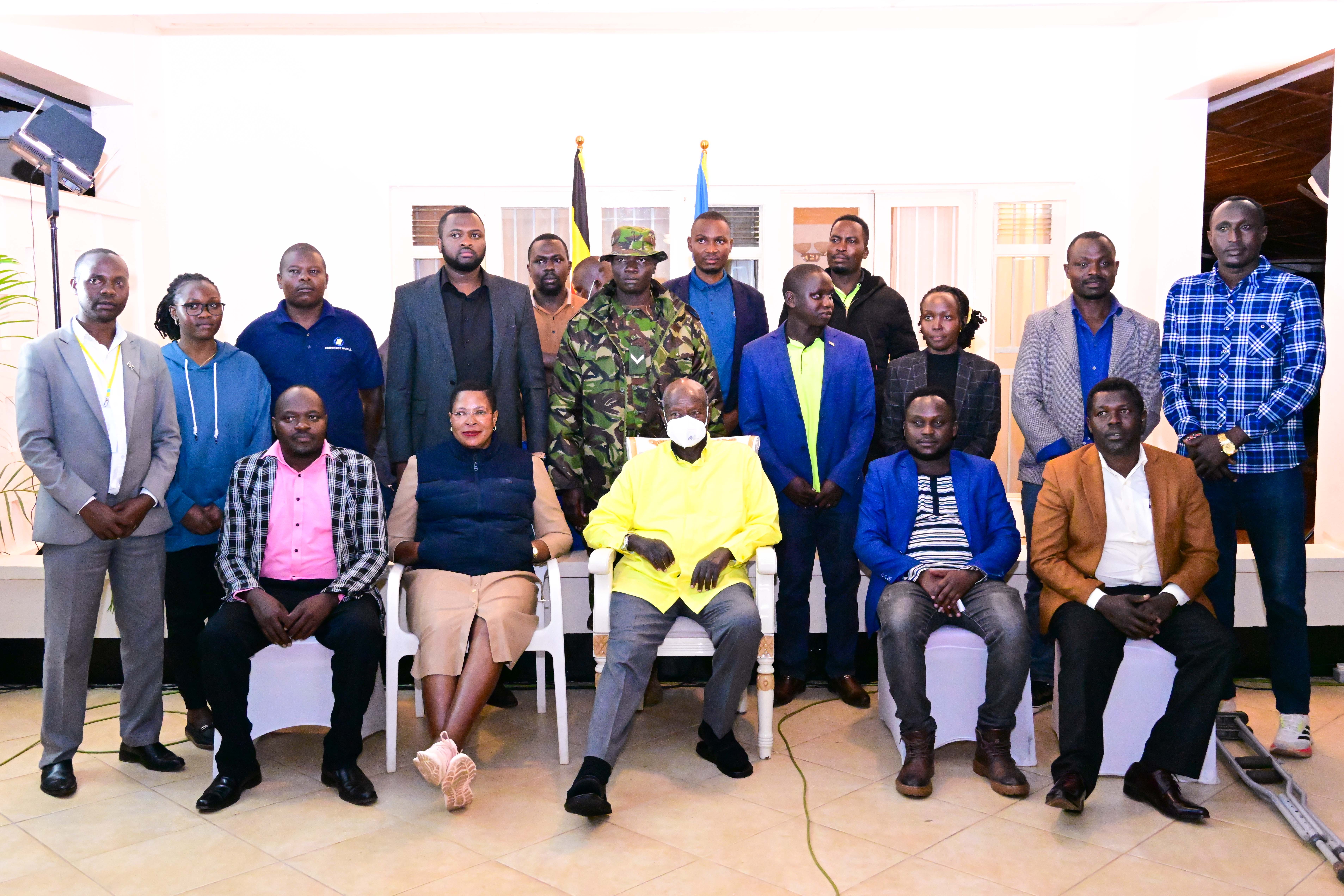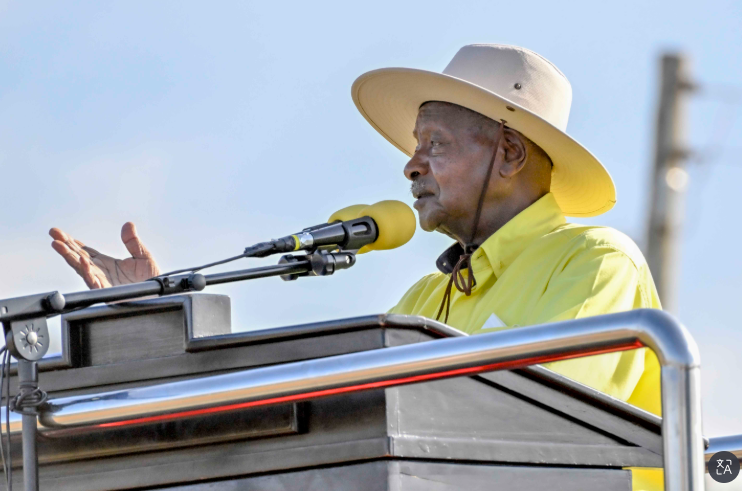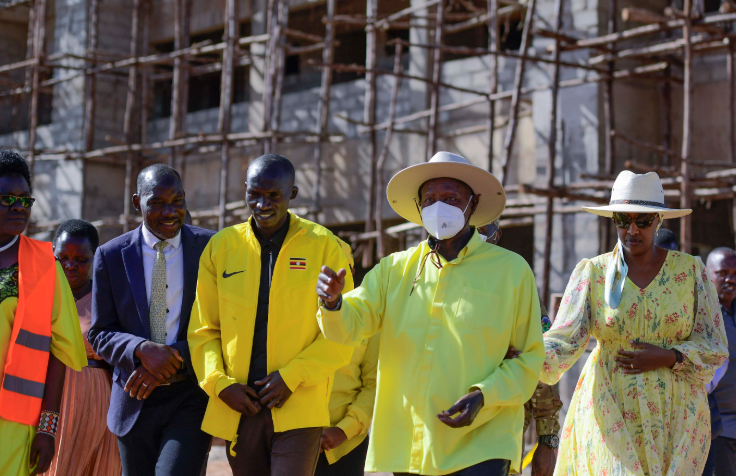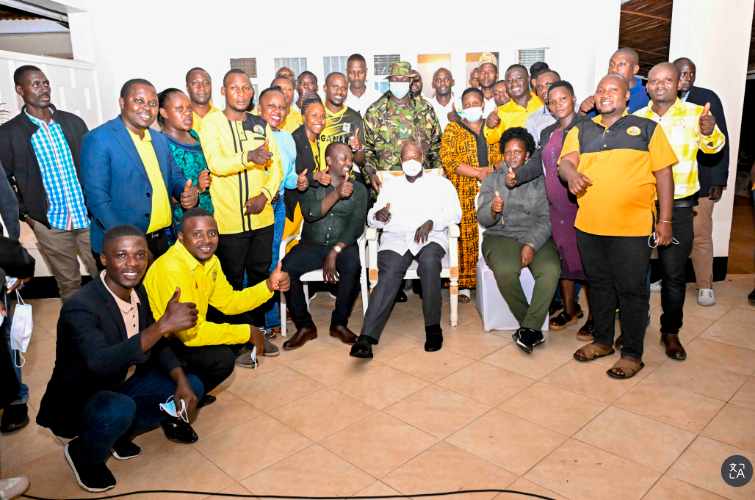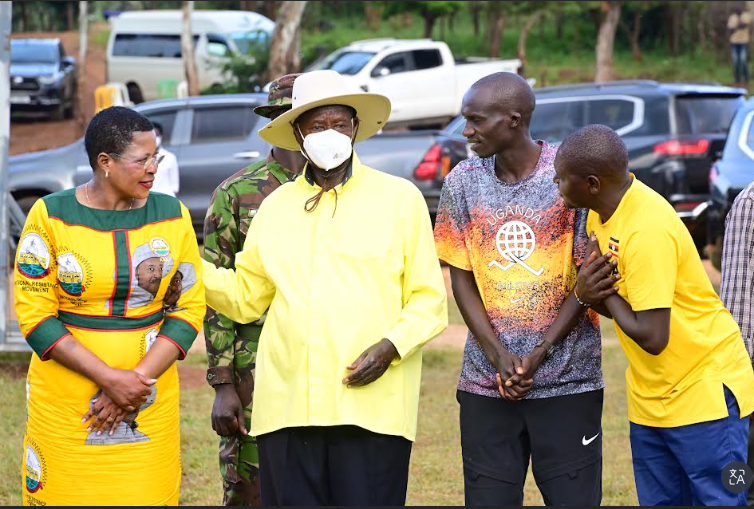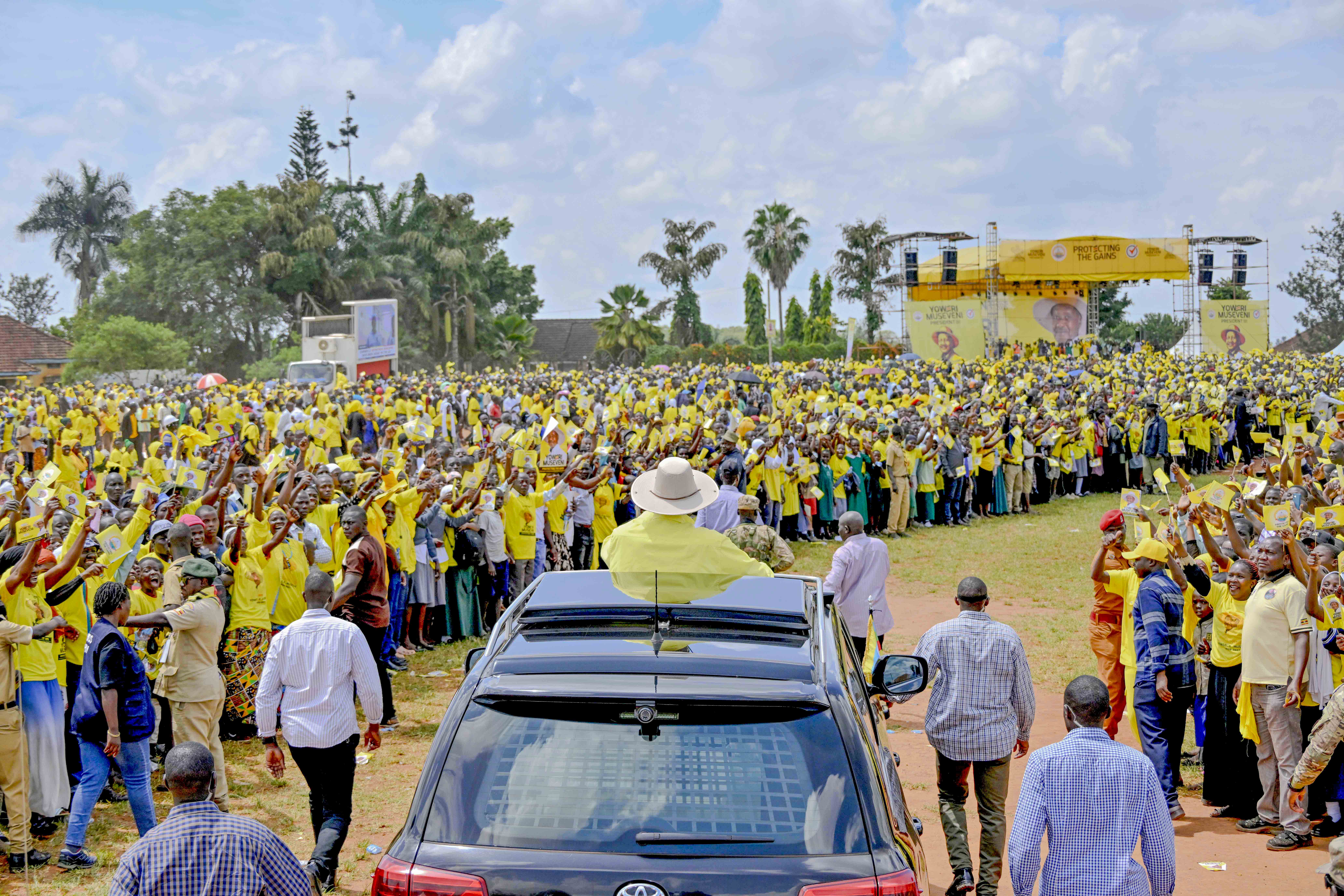12 November 2025
“SIDELINE YOUTH FROM PDM FUNDS AND YOU’LL BE SACKED,” PRESIDENT MUSEVENI WARNS CHIEFS IN BUKEDI
President Yoweri Kaguta Museveni has issued a stern warning to parish and sub-county chiefs in the Bukedi Sub-region, cautioning that any local leader who sidelines the youth, women, or persons with disabilities from benefiting under the Parish Development Model (PDM) will face dismissal.
Speaking at a campaign rally in Pallisa District on Wednesday, November 12, 2025, the President, who is also the National Resistance Movement (NRM) Presidential flag bearer for the 2026 general elections, said his government will not tolerate misuse or misallocation of funds meant for specific groups under the PDM. He set out how PDM allocations should be divided and placed responsibility squarely on local leaders to ensure transparent distribution.
“Within the 100 million shillings per parish, 30% belongs to the youth, 30% to the women, and 10% to the disabled. So, I don't want to hear that story again,” Museveni said.
“If I hear that the youth, the women, or the disabled are not getting their share, I will go for the parish chief first, and I will dismiss them, plus the sub-county chiefs,” he added.
The President’s warning comes amid growing public scrutiny over the implementation of the PDM, a flagship wealth creation and poverty reduction initiative launched in 2022, following reports of mismanagement, favoritism, and delays in disbursement across some parishes.
President Museveni underscored that local leaders bear the greatest responsibility in ensuring transparent and fair distribution of government funds, emphasizing that the success of PDM depends on honest administration at the parish level.
“Let everybody get their share. But also, you, the youth, should join the SACCOs. Go to the Muluka chief and ask them to join the parish SACCOs. Nobody will stop you as long as you’re over 18 years old,” he told the cheering crowd.
The Parish Development Model provides each parish with Shs. 100 million in seed capital to support household enterprises, savings cooperatives, and agricultural productivity.
President Museveni reiterated that these resources were designed to transition rural communities from subsistence to commercial production.
According to official statistics presented at the rally, Pallisa District—with 90 parishes—has so far received Shs. 27.7 billion under the program, with about 98.2% of the funds disbursed to 27,343 beneficiary households. This accounts for 45% of the district’s total 60,882 households, leaving 55% yet to benefit.
Wealth Creation at the Centre of the NRM Message:
Turning to his broader campaign theme, President Museveni revisited the historical evolution of Uganda’s poverty alleviation policies since the NRM took power in 1986.
He said many Ugandans still confuse “development” with “wealth creation,” a misunderstanding he has worked to correct over the years.
“Development is for all of us, but wealth is for individuals. What is mine is better than ours. The wealth that you personally create is what sustains your household,” H.E. Museveni explained, citing previous government programs, such as Entandikwa, NAADS, Operation Wealth Creation (OWC), Emyooga, and now PDM, as part of a consistent effort to empower citizens economically.
“From the beginning, we have said that if you want to be well, you must add wealth,” President Museveni said.
“We have been pleading with Ugandans to get out of poverty since 1986. Some ignored the message, but others listened, and they are now prosperous.”
To illustrate his point, President Museveni screened video clips of successful farmers who have benefited from government initiatives. Among them was Joseph Ijala of Serere District, who reportedly earns over Shs. 6 million daily from poultry and dairy farming.
“When I visited him, I found him earning 6 million shillings per day from eggs alone, plus Shs.800,000 from milk. That’s Shs. 6.8 million per day,” President Museveni narrated.
“Serere may not have tarmac roads, but there is wealth there. That’s what we mean when we talk about transforming livelihoods.”
He also showed a video of Bugangaizi West MP and Minister of State for Transport, Hon. Fred Byamukama, whose four-acre model farm, comprising coffee, fruits, food crops, dairy cattle, and poultry, generates about Shs. 700 million annually while employing 26 people.
“This is how wealth creates jobs. Government jobs are only about 480,000, yet we have millions of Ugandans. If every household focuses on productive enterprises, we can create jobs through wealth,” President Museveni said.
The NRM Presidential candidate also announced plans to expand the PDM program to new categories, including local leaders, as well as a special fund for religious leaders, fishermen and unemployed university graduates.
“We are going to add 15 million shillings for local leaders and create special funds for church and mosque leaders, as well as cultural institutions,” he said.
“We shall also start a fund for fishermen, zone by zone, because they need more than one million to buy boats and nets. For university graduates without jobs for two years, we shall also create a fund.”
Push for Industrialization in Pallisa:
The President also addressed the issue of industrial development in Bukedi, revealing that Pallisa District had offered 100 acres of land for an industrial park, but he deemed the size inadequate.
“You have given me very little land. I want a square mile or more. When you get more land, come back to me,” President Museveni said.
He referenced the Sino-Uganda Industrial Park in Mbale, which hosts 75 factories, as an example of how industrialization can generate mass employment.
Addressing the region’s natural resources, President Museveni encouraged residents of Bukedi to exploit their swampy areas for fish farming instead of depending solely on rice cultivation.
“You, the Bukedi people, are blessed with swamps. Fish farming is very lucrative. In my Lira farm, the fishponds yield 100 million shillings per year. In Limoto here, farmers are getting 56 million per acre-more than what they earned from rice,” he said.
The President promised that the government would support pond construction for farmers, saying fish farming is a major income source.
President Museveni also used the Pallisa rally to review the NRM government’s development record in the sub-region. He noted that Bukedi, once ravaged by cattle rustling and insurgency in the 1980s, now enjoys peace and infrastructure growth.
“For 40 years, we have ensured peace. Pallisa was once attacked by cattle rustlers and was a battleground for Lakwena. But now there is stability because of the institutions we built-the army, police, and a united party,” he said.
He listed peace as the first of NRM’s “seven key contributions” to Uganda, followed by development in transport, electricity, telecommunications, and water access.
“When NRM came to power, the only tarmac road in eastern Uganda passed through Tororo. We made the Iganga–Nakalama–Tirinyi–Mbale road, and later the Tirinyi–Pallisa–Kumi road,” President Museveni said.
However, he criticized local authorities for neglecting rural roads, saying maintenance units in Mbale and the districts receive funds and equipment but perform poorly.
“They just graded this road because they knew I was coming. I have warned Minister Katumba. We gave each district one billion for roads, so the RDC and LC5 must ensure accountability,” President Museveni stated.
Improving Water Access:
According to data shared at the event, 477 of Pallisa’s 498 rural villages (96%) have access to safe water sources. Completed projects include the Pallisa Town Council Piped Water Supply and Sanitation Project, serving 54,000 people, and the Limoto Irrigation Scheme in Bolliso Sub-County, benefiting 100 farmers.
Ongoing projects include the Nakitende Solar-Powered Irrigation Scheme in Najeneti Sub-County, while plans involve new piped water systems in Kibale and Kamuge Town Councils.
Education and Skilling Youth:
President Museveni said that while Pallisa District has made progress in expanding access to education, with 76 government and 160 private primary schools, and 9 government and 23 private secondary schools, some parishes and sub-counties still lack institutions.
“Our policy is one government primary school per parish and one secondary school per sub-county. Those that lack will be prioritized,” he said.
He recalled how, in 1961, Uganda had only three A-level schools for boys and three for girls nationwide.
“In 1961, when I was at Ntare school, we had many boys from Bukedi, like Dr. Steven Malinga and others who were coming to Ntare because there were only 3 A-level schools for boys in the whole of Uganda. When I come here today and find that Pallisa has nine government secondary schools, I say Eyalama Edeke (thank you God),” President Museveni remarked.
Still, he expressed concern over continued charges in government schools, which he said kept some children out of education. To address this, he highlighted the introduction of 19 skilling hubs across Uganda. In Bukedi, the hub is in Kibuku District and has trained 927 youth in welding, carpentry, tailoring, hairdressing, baking, and leather design. Currently, 234 are undergoing training.
“These children had no hope, but in just six months, they are producing goods we used to import,” he added.
The President also addressed gaps in the health sector. Out of Pallisa’s 21 sub-counties, only one has a hospital, while 14 have Health Centre IIIs. Six sub-counties have no health facilities at all.
“Our plan is to have a health centre II in every parish, a health centre III in every sub-county, and a district hospital,” President Museveni said.
Planned upgrades include turning Obutete, Kaukura, and Limoto Health Centre IIs into Health Centre IIIs, and constructing new facilities in Kamuge Rural, Agule Rural, and Oboliso Sub-counties.
The Speaker of Parliament and NRM Second National Vice Chairperson, Rt. Hon. Anita Among, who welcomed the President to Bukedi, praised the NRM government for transforming the region’s infrastructure.
“Especially the road from Tirinyi to Pallisa up to Kumi—now we have the best road in eastern Uganda,” she said.
The Speaker also commended President Museveni for “defending Uganda’s traditional values” and for “bringing money to the people.”
The NRM Vice Chairperson for Eastern Region, Mr. Calvin Echodu, said the massive turnout in Pallisa reflected public confidence in the President’s leadership.
“It’s a testament to how the people of Bukedi believe in what you and the NRM have done,” he said.
Hon. Derrick Orone, Gogonya County MP and NRM District Chairperson for Pallisa, presented seven key requests from the people of Pallisa. These included the elevation of Pallisa General Hospital to referral status, more technical schools, and political appointments for local NRM cadres.
“We shall give you above 90% in the upcoming election,” Hon. Orone said, drawing cheers from the crowd.
The rally drew thousands of residents, government officials, and party supporters, including NRM Secretary General, Rt Hon. Richard Todwong and several Members of Parliament from Bukedi and neighboring regions.


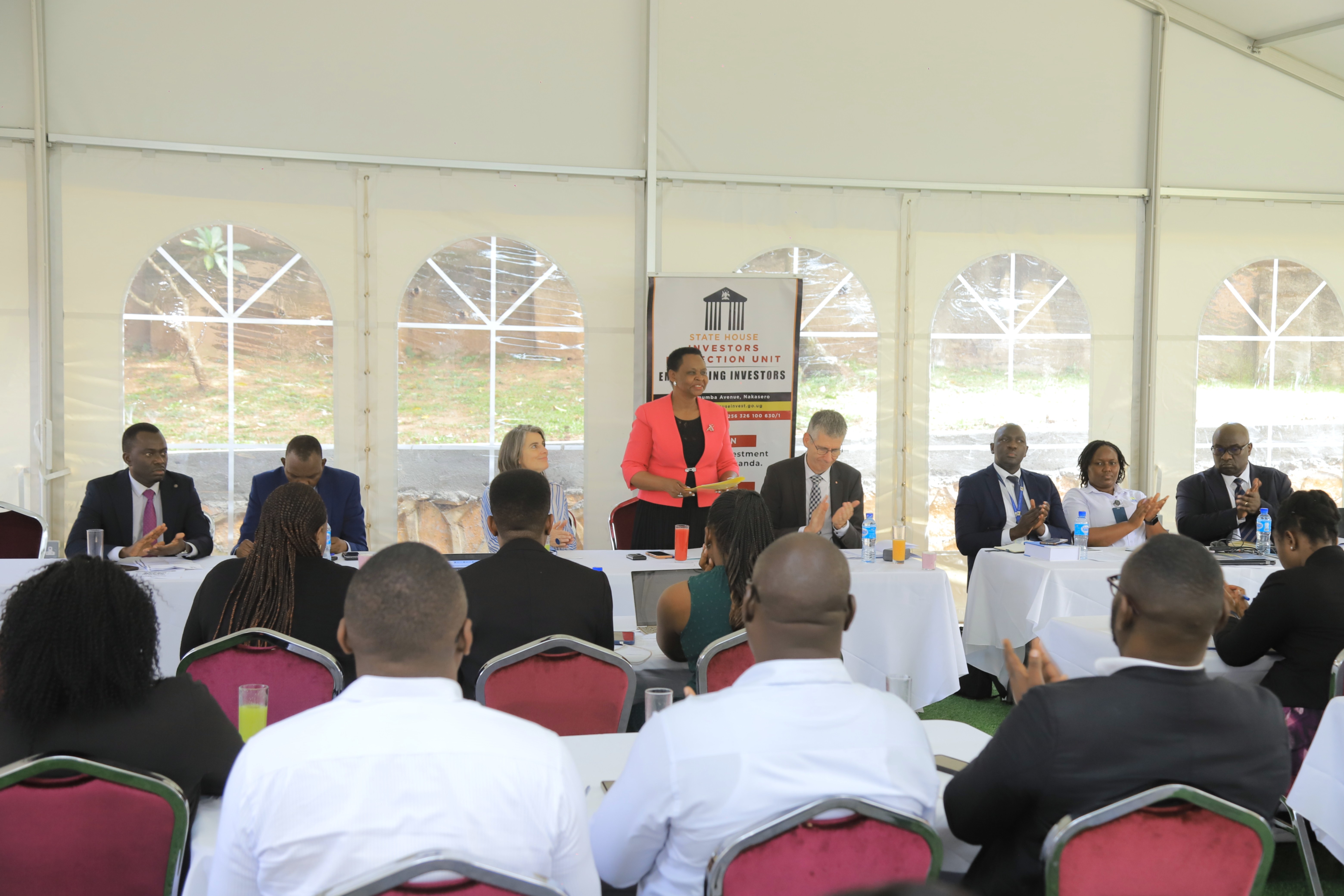
.jpg)
